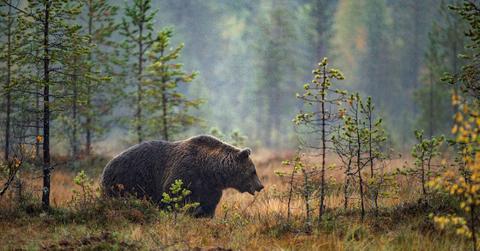Conservationists Criticize U.S. Rollbacks to Endangered Species Act — Here's Everything You Need to Know
The Trump administration made some controversial changes.
Updated Aug. 13 2019, 12:34 p.m. ET

Earlier this year, the UN stated that 1 million of the Earth's 8 million animal, insect, and plant species are threatened with extinction, making the importance of increasing protections on endangered and threatened species greater than ever. The U.S. has been at the forefront of that movement for decades, thanks to the the Endangered Species Act. However, the U.S. government just announced a few controversial changes significantly weakening the act. The revisions have been widely condemned by conservationists — and praised by the fossil fuel industry.
Here's everything you need to know about the Endangered Species Act, the changes that are being made, and what you can do about it.
What Does the Endangered Species Act Do?
The Endangered Species Act, which President Nixon signed into law in 1973, is a sweeping series of protections for endangered and threatened species in the U.S. The Endangered Species Act has long been a bipartisan piece of legislation, and it has helped save more than 99 percent of formerly endangered species, including the bald eagle, the grizzly bear, and the gray whale. For years, the act has prevented finances from being taken into consideration when assessing protecting species — "whatever the cost."
The Trump Administration is Majorly Revising the Endangered Species Act
On Monday, Aug. 12, the U.S. Department of Interior announced that the Trump administration was making a slew of revisions to the Endangered Species Act. As explained by NPR, the act will now allow lawmakers to consider the economic costs of protecting a species before it is declared endangered. This change will effectively cancel the policy of automatically protecting threatened species (the step before becoming endangered), and it will also strip protections for newly threatened species from hunting and trapping, Earthjustice noted.
Additionally, the act will require more evidence to prove that a species is endangered or threatened, meaning it will be simpler to remove species from the list, according to the Sierra Club. And finally, it will now be more difficult to consider climate change as a factor when assessing species for the list, a move that the New York Times called one of the most controversial amendments to the act.
Why Is the Trump Administration Changing the Endangered Species Act?
U.S. Secretary of the Interior David L. Bernhardt (a former fossil fuel lobbyist) announced the changes to the act this week, and he even called them "improvements." However, environmentalists believe the only "improvements" are being felt by special interest groups, and not by the endangered and threatened animals.
“The best way to uphold the Endangered Species Act is to do everything we can to ensure it remains effective in achieving its ultimate goal — recovery of our rarest species. The Act’s effectiveness rests on clear, consistent and efficient implementation,” Secretary Bernhardt said in a statement on for the Department of the Interior's press release. “An effectively administered Act ensures more resources can go where they will do the most good: on-the-ground conservation.”
One special interest group to applaud the changes to the act is the American Petroleum Institute, a trade association for the petroleum industry. The institute's VP Erik Milito said that API "understand[s] that protecting species and their habitats are a necessary aspect of safe and responsible operations to develop the nation’s oil and natural gas resources."
What Are Conservationists Saying About the Changes to the Endangered Species Act?
Bernhardt may claim that these changes are a positive thing, but many conservationists and environmentalists were in uproar over the revisions. For example, Brett Hartl, the Center for Biological Diversity's government affairs director, believes that the regressive changes are a significant threat.
“This is probably the biggest attack on how the Endangered Species Act works since its implementation,” Hartl told the Sierra Club. “It will undermine the recovery of just about every endangered species on the list. It will make it much harder for future species to get any protection moving forward.” He added that “not a single species will improve as a result of these changes," but instead, special interest groups and the fossil fuel industry will benefit.
Drew Caputo, VP of litigation at Earthjustice, pointed out the risks in considering the economics of naming species as threatened. “There can be economic costs to protecting endangered species,” Caputo explained to the New York Times. “If we make decisions based on short-term economic costs, we’re going to have a whole lot more extinct species.”
He also called the Trump administration's changes "a gift to industry."
What Can We Do to Protect Threatened Species?
The Sierra Club has a petition addressed to Secretary Bernhardt that you can sign, asking him to consider not making these changes to the Endangered Species Act. You can also donate to organizations that are actively fighting against these rollbacks to the Endangered Species Act, such as Earthjustice and the NRDC.